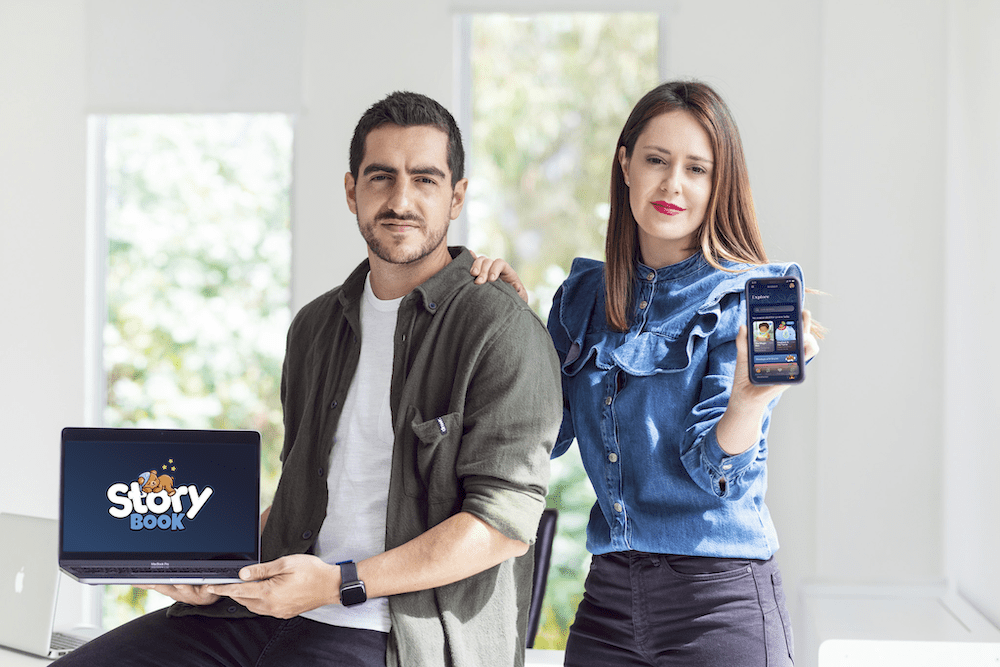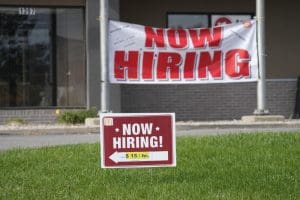By David Steinkraus
Like other app developers, Francisco Cornejo and Daniela Vega are trying to solve a problem. It started as their own problem and not one they saw coming.
They were living in Australia in 2015 while he studied for a master’s degree on a scholarship. They were 8,000 miles from their native Ecuador, in a country with an unfamiliar language and with a time zone difference that made it very difficult to talk with friends and family, Cornejo said. He worked and studied while his wife was at home with the children.
”After a few months of that routine, things started to break,” he said. “I was absent, and she wasn’t connecting emotionally with the kids.” Their children, he said, began to develop early signs of anxiety. Vega realized the children needed to feel physical affection from their parents.
“Infant massage was a fantastic tool to nurture kids emotionally. So she took a class and got certified as an infant massage instructor,” he said.
She practiced with their children with candles lit and told them stories as she worked. “Magic happened,” Cornejo said. “The kids loved these moments so much that they started to fight each other over who would go first — something that doesn’t happen with kids.” Then the children began opening up, he said. They talked about missing Ecuador and how they were treated in school.
Helping others
The family was in Australia from 2015 to 2017, and by the end of the first year, Vega had suggested the idea of a smartphone app to help other parents connect with their children. He said Cornejo and Vega returned to Ecuador, took a long time researching the idea, and in 2019 Storybook was born.
The app provides music, a recorded story read by a voice actor, and pictures that coach a parent in providing massage. It’s not the message of professionals who work and stretch tired muscles and joints. This is a gentle touch, for example, stroking from forehead to cheeks. The point is not muscle stimulation but skin-to-skin contact, Cornejo said.
The company has a group of scientists, including sleep specialists and child psychologists, who advise on methods and approve the stories. Vega wrote all of those. “She’s amazing at writing words that go directly to the heart,” Cornejo said.
What Storybook is not, he emphasized, is another product to entertain children while they’re alone and until they fall asleep, which is not good for their emotional health. “Storybook is an app created for the parents,” he added.
Starting up
Cornejo said Ecuador does not have a start-up culture, and entrepreneurs need more networking. Fortunately, Cornejo had plenty of entrepreneurial experience, so much so that his six years with Honda in Ecuador is an outlier on his resumé. “Since my childhood, I have always been doing things to earn my own money.”
He said he washed cars, cleaned shoes, owned a bar, and owned several marketing companies. He went to the Ecuador division of Honda because he likes autos and motorsports, he said, and because of what he could learn. “I always knew I would need structure and know-how from a well-established corporation.” At Honda, he learned to hire at scale and, barely age 25, was in charge of 70% of the company’s revenue, he said. As a result, he said, he better understands how to market a company like Storybook and how to scale it.
Storybook is now based in Miami but retains its development team in Ecuador. “I moved here to find opportunities, to find investors and partners, and understand customers more,” Cornejo said. Angeles Investors, the Chicago venture devoted to nurturing Latino-owned businesses, has made Storybook part of its portfolio.
The app is offered in English, Spanish, and Portuguese. English accounts for about 50% of the downloads, he said, Spanish 40%, with Portuguese making up the rest. As of a few weeks ago, the company added content in Japanese. With just those few languages, he said, Storybook is used in more than 150 countries, with most users in the United States and Latin America. He said the app is on track for 3 million downloads this quarter.
Subscription sales, which give users access to all content (there is a free version with limited content), are at about $2.5 million.
He said that companies with related products, such as essential oils that can be used in massage, are interested in being partners, and other companies offer the app as part of their employee wellness programs because they recognize that employees with undisturbed families will do better work. He said he and Vega hope to grow story characters beyond the boundaries of the app to connect with children worldwide to build their self-esteem and help them handle difficulties.
“Our goal is to reach 300 million families,” Cornejo said. “We want to go from a point solution to a platform.”
Sponsored by













